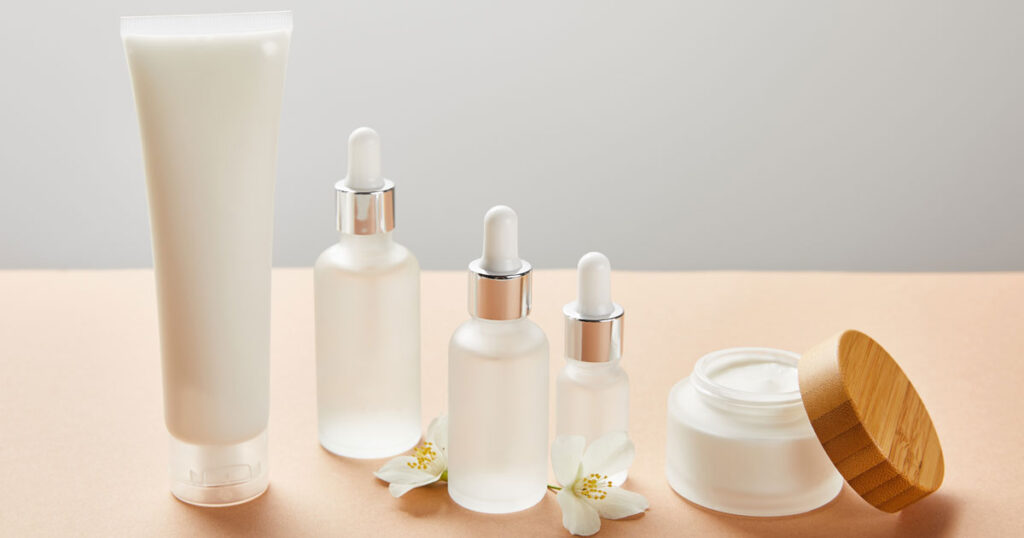Peptides have garnered significant attention in the realms of cosmetics and dermatology for their potential to repair, rejuvenate, and protect the skin. As building blocks of proteins, peptides play a crucial role in skin health, influencing everything from collagen production to skin barrier function. This blog explores the science behind peptides, their benefits for skin health, and how they are incorporated into cosmetic and dermatological products.
The Role of Peptides in Skin Health
- Collagen Production: Collagen peptides, often referred to as “signal peptides,” encourage the skin to increase collagen production. Collagen is a vital protein that gives the skin its firmness and elasticity. As we age, our body’s collagen production naturally declines, leading to wrinkles and sagging skin. By stimulating collagen synthesis, peptides can help reduce the appearance of fine lines and wrinkles, promoting a more youthful complexion.
- Barrier Repair: Barrier peptides strengthen the skin’s natural barrier, protecting against environmental damage, such as pollution and UV radiation, and preventing moisture loss. A strong skin barrier is essential for maintaining hydrated, healthy skin.
- Antimicrobial Properties: Some peptides have antimicrobial properties, making them effective in treating acne and other skin infections by inhibiting the growth of bacteria on the skin.
- Neurotransmitter Inhibitors: These peptides work by blocking the release of neurotransmitters that cause muscle contraction. By inhibiting these contractions, similar to the effect of Botox, they can reduce the appearance of dynamic wrinkles caused by facial expressions.
Peptides in Cosmetics and Dermatological Products
Peptides are found in a wide range of skincare products, from serums and creams to masks and eye treatments. Their versatility and effectiveness have made them a staple in anti-aging and reparative skin care formulations. When selecting products with peptides, consider the following:
- Product Formulation: Look for products that contain a combination of peptides to target various skin concerns. The effectiveness of a peptide product also depends on the stability of the peptide and its ability to penetrate the skin.
- Concentration: The concentration of peptides in a product can affect its efficacy. Higher concentrations of peptides may offer more significant benefits, but it’s essential to follow the manufacturer’s directions to avoid skin irritation.
- Skin Type: Choose peptide products that are formulated for your skin type, whether it’s oily, dry, sensitive, or combination, to ensure the best results and minimize the risk of adverse reactions.
The Future of Peptides in Skincare
As research into peptides and their skin benefits continues to advance, we can expect to see more innovative and effective peptide-based products entering the market. Custom peptide formulations tailored to individual skin concerns and conditions may become more prevalent, offering personalized skincare solutions.
Conclusion
Peptides are a promising ingredient in the field of cosmetics and dermatology, offering a range of benefits from anti-aging to skin barrier repair. As science continues to unravel the potential of peptides, their role in skincare is set to grow, providing exciting opportunities for enhancing skin health and beauty. Whether you’re looking to combat the signs of aging, improve skin hydration, or protect against environmental damage, there’s likely a peptide product that can address your needs.




